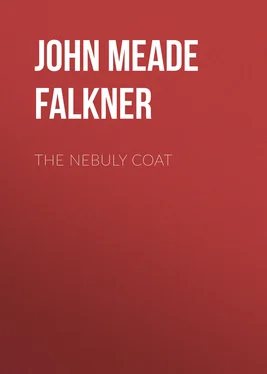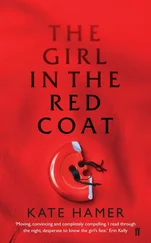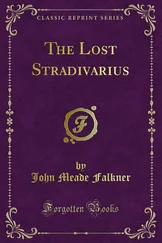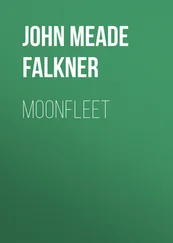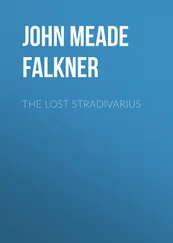John Meade Falkner - The Nebuly Coat
Здесь есть возможность читать онлайн «John Meade Falkner - The Nebuly Coat» — ознакомительный отрывок электронной книги совершенно бесплатно, а после прочтения отрывка купить полную версию. В некоторых случаях можно слушать аудио, скачать через торрент в формате fb2 и присутствует краткое содержание. Жанр: foreign_antique, foreign_home, architecture_book, на английском языке. Описание произведения, (предисловие) а так же отзывы посетителей доступны на портале библиотеки ЛибКат.
- Название:The Nebuly Coat
- Автор:
- Жанр:
- Год:неизвестен
- ISBN:нет данных
- Рейтинг книги:3 / 5. Голосов: 1
-
Избранное:Добавить в избранное
- Отзывы:
-
Ваша оценка:
- 60
- 1
- 2
- 3
- 4
- 5
The Nebuly Coat: краткое содержание, описание и аннотация
Предлагаем к чтению аннотацию, описание, краткое содержание или предисловие (зависит от того, что написал сам автор книги «The Nebuly Coat»). Если вы не нашли необходимую информацию о книге — напишите в комментариях, мы постараемся отыскать её.
The Nebuly Coat — читать онлайн ознакомительный отрывок
Ниже представлен текст книги, разбитый по страницам. Система сохранения места последней прочитанной страницы, позволяет с удобством читать онлайн бесплатно книгу «The Nebuly Coat», без необходимости каждый раз заново искать на чём Вы остановились. Поставьте закладку, и сможете в любой момент перейти на страницу, на которой закончили чтение.
Интервал:
Закладка:
“Lastly, worldly wisdom, or what Miss Joliffe thinks wisdom, says, ‘No, don’t sell it; you should get more than fifty pounds for such a gem.’ So she is tossed about, and if she’d lived when there were monks in Cullerne Church, she would have asked her father confessor, and he would have taken down his ‘Summa Angelica,’ and looked it out under V.—‘ Vendetur? utrum vendetur an non ?’—and set her mind at rest. You didn’t know I could chaffer Latin with the best of ’em, did you? Ah, but I can, even with the Rector, for all the nebulus and nebulum ; only I don’t trot it out too often. I’ll show you a copy of the ‘Summa’ when you come down to my room; but there aren’t any confessors now, and dear Protestant Parkyn couldn’t read the ‘Summa’ if he had it; so there is no one to settle the case for her.”
The little man had worked himself into a state of exaltation, and his eyes twinkled as he spoke of his scholastic attainments. “Latin,” he said—“damn it! I can talk Latin against anyone—yes, with Beza himself—and could tell you tales in it which would make you stop your ears. Ah, well, more fool I—more fool I. ‘ Contentus esto, Paule mi, lasciva, Paule, pagina ,’” he muttered to himself, and drummed nervously with his fingers on the table.
Westray was apprehensive of these fits of excitement, and led the conversation back to the old theme.
“It baffles me to understand how anyone with eyes at all could think a daub like this was valuable—that is strange enough; but how come these London people to have made an offer for it? I know the firm quite well; they are first-rate dealers.”
“There are some people,” said the organist, “who can’t tell ‘Pop goes the weasel’ from the ‘Hallelujah Chorus,’ and others are as bad with pictures. I’m very much that way myself. No doubt all you say is right, and this picture an eyesore to any respectable person, but I’ve been used to it so long I’ve got to like it, and should be sorry to see her sell it. And as for these London buyers, I suppose some other ignoramus has taken a fancy to it, and wants to buy. You see, there have been chance visitors staying in this room a night or two between whiles—perhaps even Americans, for all I said about them—and you can never reckon what they’ll do. The very day Martin Joliffe died there was a story of someone coming to buy the picture of him. I was at church in the afternoon, and Miss Joliffe at the Dorcas meeting, and Anastasia gone out to the chemist. When I got back, I came up to see Martin in this same room, and found him full of a tale that he had heard the bell ring, and after that someone walking in the house, and last his door opened, and in walked a stranger. Martin was sitting in the chair I’m using now, and was too weak then to move out of it; so he was forced to sit until this man came in. The stranger talked kindly to him, so he said, and wanted to buy the picture of the flowers, bidding as high as twenty pounds for it; but Martin wouldn’t hear him, and said he wouldn’t let him have it for ten times that, and then the man went away. That was the story, and I thought at the time ’twas all a cock-and-bull tale, and that Martin’s mind was wandering; for he was very weak, and seemed flushed too, like one just waken from a dream. But he had a cunning look in his eye when he told me, and said if he lived another week he would be Lord Blandamer himself, and wouldn’t want then to sell any pictures. He spoke of it again when his sister came back, but couldn’t say what the man was like, except that his hair reminded him of Anastasia’s.
“But Martin’s time was come; he died that very night, and Miss Joliffe was terribly cast down, because she feared she had given him an overdose of sleeping-draught; for Ennefer told her he had taken too much, and she didn’t see where he had got it from unless she gave it him by mistake. Ennefer wrote the death certificate, and so there was no inquest; but that put the stranger out of our thoughts until it was too late to find him, if, indeed, he ever was anything more than the phantom of a sick man’s brain. No one beside had seen him, and all we had to ask for was a man with wavy hair, because he reminded Martin of Anastasia. But if ’twas true, then there was someone else who had a fancy for the painting, and poor old Michael must have thought a lot of it to frame it in such handsome style.”
“I don’t know,” Westray said; “it looks to me as if the picture was painted to fill the frame.”
“Perhaps so, perhaps so,” answered the organist dryly. “What made Martin Joliffe think he was so near success?”
“Ah, that I can’t tell you. He was always thinking he had squared the circle, or found the missing bit to fit into the puzzle; but he kept his schemes very dark. He left boxes full of papers behind him when he died, and Miss Joliffe handed them to me to look over, instead of burning them. I shall go through them some day; but no doubt the whole thing is moonshine, and if he ever had a clue it died with him.”
There was a little pause; the chimes of Saint Sepulchre’s played “Mount Ephraim,” and the great bell tolled out midnight over Cullerne Flat.
“It’s time to be turning in. You haven’t a drop of whisky, I suppose?” he said, with a glance at the kettle which stood on a trivet in front of the fire; “I have talked myself thirsty.”
There was a pathos in his appeal that would have melted many a stony heart, but Westray’s principles were unassailable, and he remained obdurate.
“No, I am afraid I have not,” he said; “you see, I never take spirits myself. Will you not join me in a cup of cocoa? The kettle boils.”
Mr Sharnall’s face fell.
“You ought to have been an old woman,” he said; “only old women drink cocoa. Well, I don’t mind if I do; any port in a storm.”
The organist went to bed that night in a state of exemplary sobriety, for when he got down to his own room he could find no spirit in the cupboard, and remembered that he had finished the last bottle of old Martelet’s eau-de-vie at his tea, and that he had no money to buy another.
Chapter Six
A month later the restoration work at Saint Sepulchre’s was fairly begun, and in the south transept a wooden platform had been raised on scaffold-poles to such a height as allowed the masons to work at the vault from the inside. This roof was no doubt the portion of the fabric that called most urgently for repair, but Westray could not disguise from himself that delay might prove dangerous in other directions, and he drew Sir George Farquhar’s attention to more than one weak spot which had escaped the great architect’s cursory inspection.
But behind all Westray’s anxieties lurked that dark misgiving as to the tower arches, and in his fancy the enormous weight of the central tower brooded like the incubus over the whole building. Sir George Farquhar paid sufficient attention to his deputy’s representations to visit Cullerne with a special view to examining the tower. He spent an autumn day in making measurements and calculations, he listened to the story of the interrupted peal, and probed the cracks in the walls, but saw no reason to reconsider his former verdict or to impugn the stability of the tower. He gently rallied Westray on his nervousness, and, whilst he agreed that in other places repair was certainly needed, he pointed out that lack of funds must unfortunately limit for the present both the scope of operations and the rate of progress.
Cullerne Abbey was dissolved with the larger religious houses in 1539, when Nicholas Vinnicomb, the last abbot, being recalcitrant, and refusing to surrender his house, was hanged as a traitor in front of the great West Gate-house. The general revenues were impropriated by the King’s Court of Augmentations, and the abbey lands in the immediate vicinity were given to Shearman, the King’s Physician. Spellman, in his book on sacrilege, cites Cullerne as an instance where church lands brought ruin to their new owner’s family; for Shearman had a spendthrift son who squandered his patrimony, and then, caballing with Spanish intriguants, came to the block in Queen Elizabeth’s days.
Читать дальшеИнтервал:
Закладка:
Похожие книги на «The Nebuly Coat»
Представляем Вашему вниманию похожие книги на «The Nebuly Coat» списком для выбора. Мы отобрали схожую по названию и смыслу литературу в надежде предоставить читателям больше вариантов отыскать новые, интересные, ещё непрочитанные произведения.
Обсуждение, отзывы о книге «The Nebuly Coat» и просто собственные мнения читателей. Оставьте ваши комментарии, напишите, что Вы думаете о произведении, его смысле или главных героях. Укажите что конкретно понравилось, а что нет, и почему Вы так считаете.
